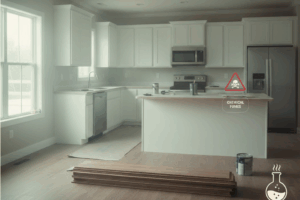
What Are the Problems with Air Tight Homes?
As energy efficiency becomes a priority in home design, air-tight homes are increasingly common. While they offer significant benefits in terms of energy savings and environmental impact, these homes also present unique challenges, particularly regarding indoor air quality (IAQ).
Understanding the IAQ Challenges in Air-Tight Homes
1. Limited Natural Ventilation: Air-tight homes can trap pollutants indoors, as the reduced air exchange with the outside limits the removal of stale air and introduction of fresh air.
2. Accumulation of Indoor Pollutants: Everyday activities and materials can release pollutants like volatile organic compounds (VOCs), dust, and mold spores. In an air-tight environment, these can accumulate to harmful levels.
3. Humidity Control Issues: Without proper ventilation, moisture generated inside the home from cooking, showering, and even breathing can lead to excessive indoor humidity, promoting mold growth and dust mite proliferation.
4. Potential for Poor Air Circulation: Air-tight homes may suffer from uneven air distribution, leading to hot or cold spots and discomfort.
The Role of IAQ Certifications
To address these challenges, the role of certified IAQ professionals becomes crucial:
- For Ventilation Solutions: Certified Ventilation Inspection Technicians (CVIT) can evaluate and improve ventilation systems to ensure adequate air exchange.
- For Pollutant Identification: Certified Indoor Air Quality Testing Technicians (CIAQTT) assess the air quality, identifying specific pollutants and advising on remediation strategies.
- For Mold and Humidity Management: Certified Mold Inspection Technicians (CMIT) and Certified Mold Remediation Technicians (CMRT) can address mold-related issues, which are common in high-humidity environments.
External Resources for Further Information:
- U.S. Environmental Protection Agency – Indoor Air Quality
- Energy Star – Ventilation and Indoor Air Quality
These resources provide additional insights into managing indoor air quality in energy-efficient, air-tight homes.
Conclusion
While air-tight homes offer significant energy efficiency, they require careful management of indoor air quality. By understanding the challenges and engaging IAQ-certified professionals, homeowners can enjoy the benefits of energy-efficient living without compromising on air quality and health.



